BYD Seal vs Dacia Duster - Differences and prices compared
Compare performance (530 HP vs 158 HP), boot space and price (40300 £ vs 16300 £ ) at a glance. Find out which car is the better choice for you – BYD Seal or Dacia Duster?
Costs and Efficiency:
Looking at overall running costs, both models reveal some interesting differences in everyday economy.
Dacia Duster has a decisively advantage in terms of price – it starts at 16300 £ , while the BYD Seal costs 40300 £ . That’s a price difference of around 24000 £.
Engine and Performance:
Power, torque and acceleration are the classic benchmarks for car enthusiasts – and here, some clear differences start to show.
When it comes to engine power, the BYD Seal has a convincingly edge – offering 530 HP compared to 158 HP. That’s roughly 372 HP more horsepower.
In acceleration from 0 to 100 km/h, the BYD Seal is convincingly quicker – completing the sprint in 3.80 s, while the Dacia Duster takes 9.40 s. That’s about 5.60 s faster.
There’s no difference in top speed – both reach 180 km/h.
There’s also a difference in torque: BYD Seal pulls clearly stronger with 670 Nm compared to 230 Nm. That’s about 440 Nm difference.
Space and Everyday Use:
Beyond pure performance, interior space and usability matter most in daily life. This is where you see which car is more practical and versatile.
Both vehicles offer seating for 5 people.
In curb weight, Dacia Duster is distinct lighter – 1377 kg compared to 1907 kg. The difference is around 530 kg.
In terms of boot space, the Dacia Duster offers evident more room – 517 L compared to 400 L. That’s a difference of about 117 L.
When it comes to payload, BYD Seal minimal takes the win – 473 kg compared to 453 kg. That’s a difference of about 20 kg.
Who wins the race in the data check?
The BYD Seal sits well ahead of its rival in the objective data comparison.
This result only shows which model scores more points on paper – not which of the two cars feels right for you.
Costs and Consumption
View detailed analysis
Engine and Performance
View detailed analysis
Dimensions and Body
View detailed analysis
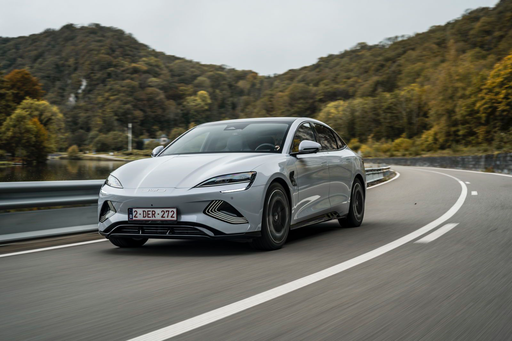
BYD Seal
BYD Seal
The BYD Seal is a sleek electric fastback that punches above its class with sporty looks and a surprisingly premium cabin, offering a very modern alternative for buyers who want style and substance without the badge snobbery. On the road it feels composed and eager, packed with tech and everyday practicality—ideal for shoppers after eco-friendly performance with a cheeky wink.
details


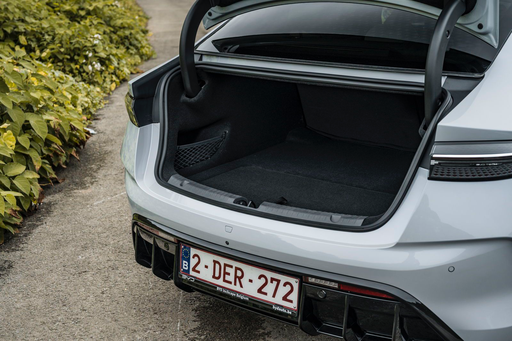
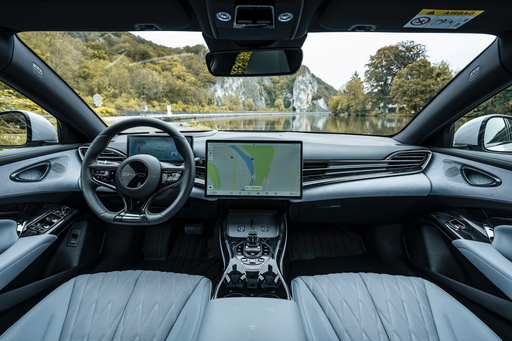
Dacia Duster
The Dacia Duster is a no-nonsense compact SUV that delivers rugged practicality and surprisingly comfortable everyday driving without fuss. It might not win any beauty contests, but its honest design, easy-to-live-with cabin and tough attitude make it a smart pick for buyers who want reliable transport without luxury frills.
details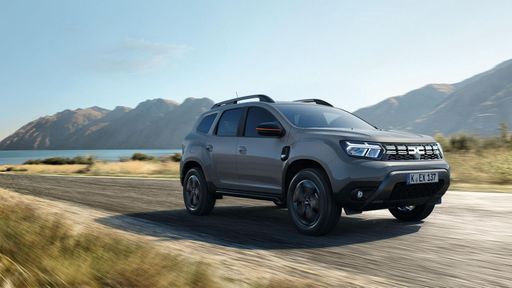
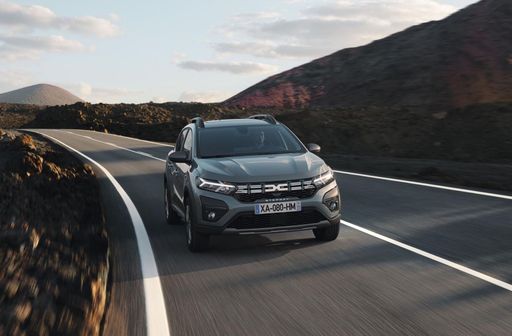
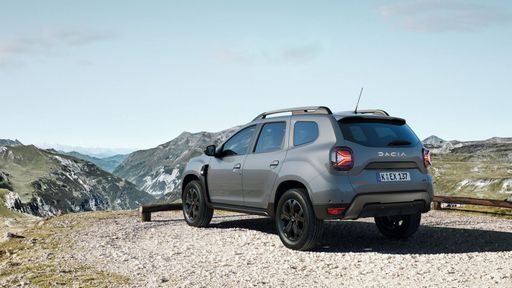
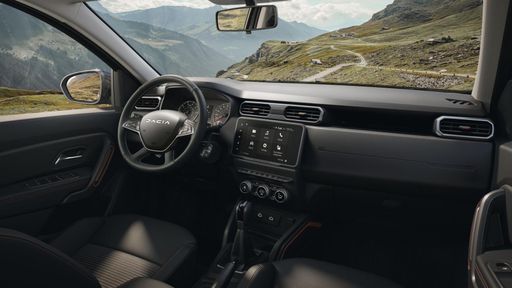
Costs and Consumption |
|
|---|---|
|
Price
40300 - 45400 £
|
Price
16300 - 24900 £
|
|
Consumption L/100km
-
|
Consumption L/100km
4.7 - 7.5 L
|
|
Consumption kWh/100km
15.4 - 18.2 kWh
|
Consumption kWh/100km
-
|
|
Electric Range
460 - 570 km
|
Electric Range
-
|
|
Battery Capacity
-
|
Battery Capacity
0.60 kWh
|
|
co2
0 g/km
|
co2
107 - 124 g/km
|
|
Fuel tank capacity
-
|
Fuel tank capacity
50 L
|
Dimensions and Body |
|
|---|---|
|
Body Type
Sedan
|
Body Type
SUV
|
|
Seats
5
|
Seats
5
|
|
Doors
4
|
Doors
5
|
|
Curb weight
1907 - 2185 kg
|
Curb weight
1377 - 1455 kg
|
|
Trunk capacity
400 L
|
Trunk capacity
348 - 517 L
|
|
Length
4800 mm
|
Length
4343 mm
|
|
Width
1875 mm
|
Width
1813 mm
|
|
Height
1460 mm
|
Height
1656 - 1659 mm
|
|
Max trunk capacity
-
|
Max trunk capacity
1414 - 1609 L
|
|
Payload
446 - 473 kg
|
Payload
450 - 453 kg
|
Engine and Performance |
|
|---|---|
|
Engine Type
Electric
|
Engine Type
Petrol MHEV, Full Hybrid, LPG
|
|
Transmission
Automatic
|
Transmission
Manuel, Automatic
|
|
Transmission Detail
Reduction Gearbox
|
Transmission Detail
Manual Gearbox, Automated Manual, Dual-Clutch Automatic
|
|
Drive Type
Rear-Wheel Drive, All-Wheel Drive
|
Drive Type
Front-Wheel Drive, All-Wheel Drive
|
|
Power HP
231 - 530 HP
|
Power HP
115 - 158 HP
|
|
Acceleration 0-100km/h
3.8 - 7.5 s
|
Acceleration 0-100km/h
9.4 - 11.6 s
|
|
Max Speed
180 km/h
|
Max Speed
180 km/h
|
|
Torque
360 - 670 Nm
|
Torque
190 - 230 Nm
|
|
Number of Cylinders
-
|
Number of Cylinders
3 - 4
|
|
Power kW
170 - 390 kW
|
Power kW
84 - 116 kW
|
|
Engine capacity
-
|
Engine capacity
1199 - 1789 cm3
|
General |
|
|---|---|
|
Model Year
2023 - 2025
|
Model Year
2025
|
|
CO2 Efficiency Class
A
|
CO2 Efficiency Class
D, C
|
|
Brand
BYD
|
Brand
Dacia
|
What drive types are available for the BYD Seal?
The BYD Seal is available as Rear-Wheel Drive or All-Wheel Drive.
